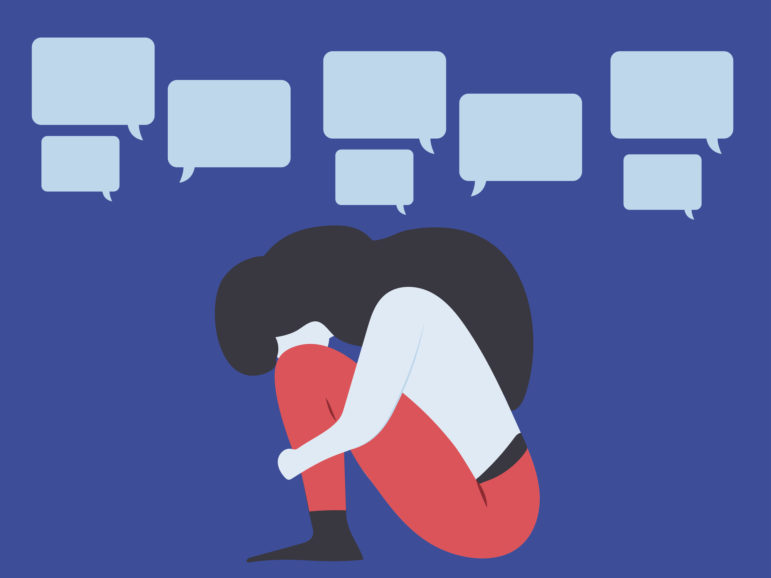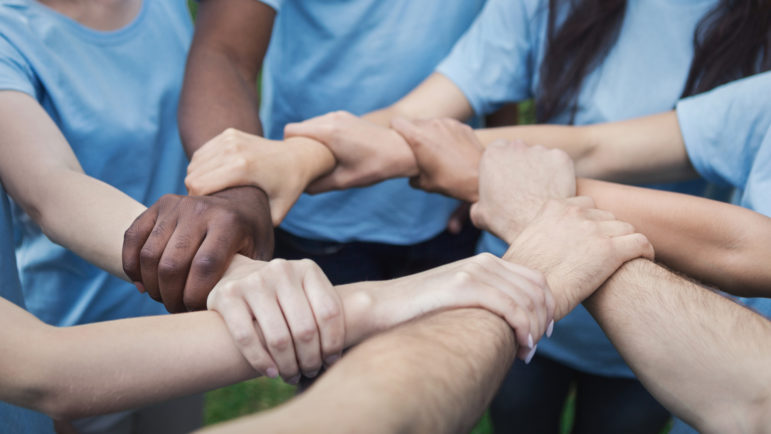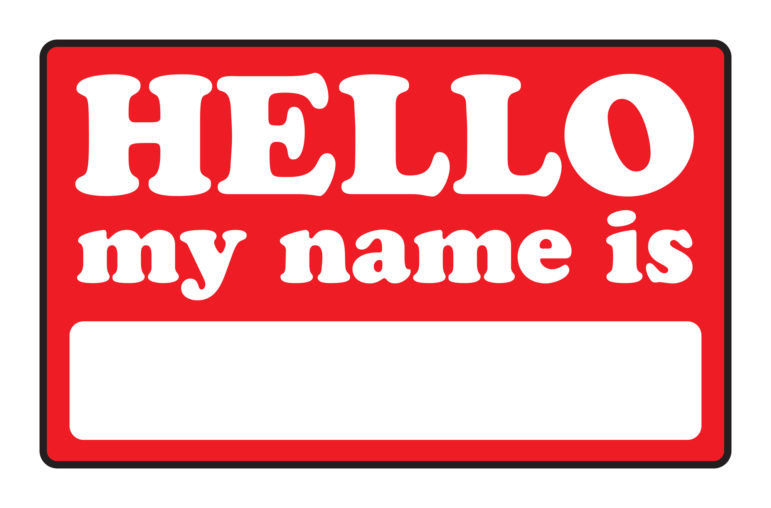
Like most things, labels are a mixed bag. They can be restrictive, overly rigid, and they often fail to fully express the nuanced natures of those who have been marked by them. Labels can lump us together in such a way that they cause us to be stripped of our individuality, and sometimes even our humanity, especially when they are thrust upon us from outside.
In the Queer community, we are no strangers to having hurtful labels flung at us; slurs like “fag,” “dyke,” “fairy,” and “queer” were words I often heard in my childhood. They were used to disempower and denigrate those of us who were perceived as being different – especially if those differences had to do with the narrow definitions of sexuality and gender upheld by the larger society. Some, like myself, might even have been labeled correctly (surprise! I am a fairy!), if not compassionately, but many have been harmed by being labeled in a way that did them an injustice or otherwise caused them harm. Perhaps for that reason, more than any other, some have understandably rejected the need for labels altogether.

Artists depiction of the emotional results of bullying, name-calling, gossiping. Credit: DepositPhotos.
Labels can do us harm, certainly, but they can also do us great benefit. The difference is in how they are applied.
When I refer to myself as a Queer person, this is a label that I have chosen for myself because I feel that it describes a certain facet of my experience. It expresses to the larger (likely “straight”) world that I am probably somewhat “different” than what is their own lived experience. In this, labeling is a political act: to wear proudly the very thing that has been used to condemn and disempower. It is an act that seeks to regain that power, to take it back from the oppressive structure and use it to free ourselves and our kindred, to elevate us from our lowly stations and rise above it all, usually with a witty comment and a flair for the dramatic. (“I’m here. I’m Queer. F— around and find out.”)
Now, when I call myself “Queer,” this does not and cannot fully express my being. I might also use the label “gay,” which would be a little more descriptive. In this my sexuality is more fully expressed (same-sex attraction) even as my gender identity is implied (though not stated outright, as women have often been called “gay” as well). Were I to say that I am a “gay man” this tells the world a bit more, and a “gay cis man” more still.
Add to that “author,” “artist,” “husband,” “boyfriend,” “dog lover,” “nerd,” “ginger,” “business owner,” “Pisces,” and “opinionated keyboard jockey,” and you might start to get a better sense of me as a whole. But even still, you will have only a fraction of who I am, because labels, like the signposts along the road, can merely point the way. We have to follow them to our destination to experience things for ourselves. Labels need not be boxes. Labels can be maps.
I think the “Queer” label is an important one because it gives what has been a marginalized (and even fractured) community an opportunity to band together. People who identify as gay, lesbian, bisexual, trans, asexual, intersex, and all other gender and sexual minorities, have often been encouraged to see our differences as reasons to dissociate from one another, a tactic that serves no one more so than those who would delight in seeing us stripped of our rights altogether.

A number of people clasping each others’ arms in a circle. Image: DepositPhotos.
Collectively we have more power than we would on our own, and so a label like “Queer” can serve as a poetic (and therefore magical) umbrella term that allows for more a more diverse population to gather beneath. Gathered even are those who have a different life experience than we do, but with whom we still share a certain commonality. The label of “Queer” is most certainly not “erasure”; it does not make invisible the nuances and differences that we all have, because it does not seek to replace any other label or descriptor with which we may identify. It is inherently a term of intersectionality, allowing those in a diverse and somewhat nebulous community the chance to focus on what binds us together, rather than what separates us.
To call myself “Queer” does nothing to detract from the fact that I am also a cis gender polyamorous gay man of predominately Irish descent who enjoys vegan ice cream and Star Trek, and yet, in a way, it makes a space for all of that. The label “Queer” is magical.
When we reach out to others we can become a stronger force because of it. This doesn’t mean that we have to forgo all that makes us unique. It means that even as we are celebrating ourselves we are also looking into the lives of others with whom we share in being “othered” based on our actual or perceived sexual orientation and/or gender identity, and most importantly, having empathy for them. We have to be able to have empathy for more than just those who look like us, or whose life experiences mirror our own.
Collectively we can stand against the currents of violence, misogyny, transphobia, racism, and bigotry, and work for a more inclusive and compassionate world in which we all have a place at the table and our differences are actively celebrated rather than simply tolerated or worse. And one way in which people have traditionally worked to create social change is through religion.
Paganism is the “queerest” of spiritual philosophies in that it is an exceedingly wide umbrella, under which many different types of religions and spiritual beliefs find home & flourish. Collectively, Paganism represents many different tribes and traditions from many different cultures, often expressing solidarity and finding resonances with indigenous peoples. For many, it is a path of worshiping old gods and practicing historically verified customs. For some, it is about translating those ancient practices into modern expressions, preferring creativity over historical accuracy. For others, it is less about gods and historical practice and more about living in spiritual alignment with the various cycles and rhythms of nature. Still others may see Paganism as a poetic expression of their often ecofeminist political beliefs and may even be atheist. To confuse things further, individuals and groups may share any number of these qualities and may shift over time, making it sometimes difficult to define exactly what is or is not Paganism on the surface. Sound familiar so far?
For many people outside our collective “faiths,” the term “pagan” means simply “not of the One-True-Right Path®,” that is, the established monotheisms of Islam, Judaism, and Christianity, in all their forms. The word stems from paganus, Latin for “country dweller.” This was actually an insult at the time, implying a lack of education and status, much as one might use the word “hick” in North America today. But regardless of the words’ origins we have championed this once-slur and built a growing and diverse community around it, much as has been done for “Witch” and as some do today with “warlock.”

“HELLO MY NAME IS”. Credit: DepositPhotos.
Those of us who have taken on any sort of magical name know that to take on a name carries with it a shift in personal power. When I adopted the name “Storm” it was because of an especially powerful dream in which a tornado threatened my life. “Faerywolf” came later as a result of a visionary experience with a wolf spirit, a dream in which I was a wolf, running breakneck toward a mountaintop, as well as an homage to the particular stream of the Craft into which I have been initiated. All of these “threads” of power and association are woven together in my magical name; a spell that invokes the “magical persona”. The magical name is like a sigil, an energetic doorway through which we may focus our attention, driving us ever closer to making our dreams manifest.
So too is “Queer” a magical name, a name for our beloved community. A community that is widely diverse, thoughtful, quirky, playful, and downright weird. A community that has suffered hardships, and heartbreaks, and crushing defeats for much of our history, but also one that has triumphed, again and again against all odds. “Queer” may have been the insult, hurled across playgrounds or back alleys, city streets, or country roads, but if embraced it can become a magical agent of our unity, healing, and empowerment.
While the individual letters of our “alphabet soup” are each important, in their current form of LGBTQIAA+ they lack the elegance or cohesiveness that a single word provides. If we understand that “Queer” does not replace the many individual threads woven together into our collective tapestry, then we may approach it like the sigil it is and focus our intentions through it as we each help to guide (and be informed by) the living egregore of “the Queer community”. One of the oldest occult ideas is that words –and especially names– have power. This Queer warlock intends to make the best use of them.
The Wild Hunt is not responsible for links to external content.
To join a conversation on this post:
Visit our The Wild Hunt subreddit! Point your favorite browser to https://www.reddit.com/r/The_Wild_Hunt_News/, then click “JOIN”. Make sure to click the bell, too, to be notified of new articles posted to our subreddit.